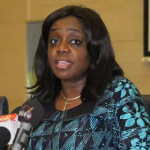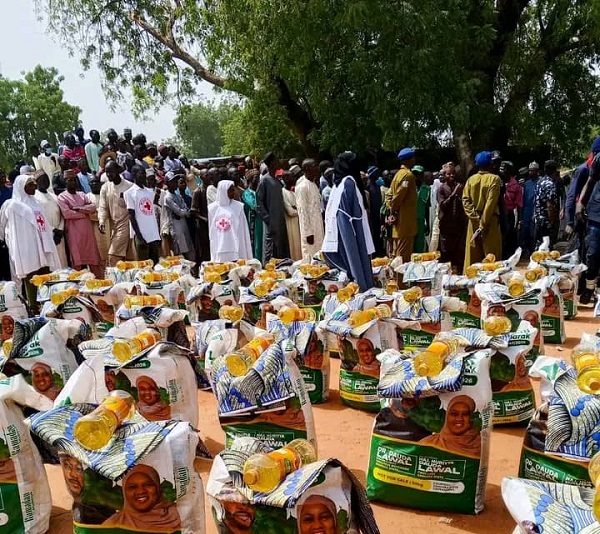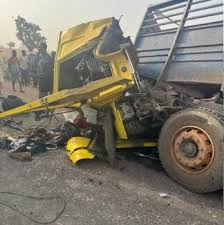Frustration and suffering in Nigeria gave rise to cry of marginalization, restructuring –Kaigama

Archbishop Ignatius Kaigama is the President of Catholic Bishops of Nigeria and the Archbishop of Jos.In this interview with KINGSLEY CHUKWUKA, he speaks on the state of the nation as it concerns the present administration and the circle of killings that has continued unabated.
What is your take on the series of attacks by the suspected Fulani headsmen in Plateau State?
Plateau State has had a very unfortunate situation of crisis over the years and until recently; we thought all this is put behind us because there has been very commendable efforts by the Plateau State government to ensure the safety of lives and properties.
So, it was very disappointing and surprising to hear recently that these killings have resumed and the most painful thing is that the killers are referred to as unknown gunmen.
This is a very sad nomenclature, why should gunmen be unknown for years, they kill innocent people and destroy their means of livelihood and yet they are unknown.
We have security agents mandated to ensure the safety of all citizens, and within all military and paramilitary agencies we have intelligence units and yet these killers remain unknown:
I can only describe this as being pervasive and it demonstrates the absence of political will to identify who these unknown gunmen are.
We should stop pretending, and stop being hypocritical, common sense tells us that these people are known, but I think what is lacking is the political will and the sense of character to call a spade a spade.
Government is hypocritical about this, from Mr. President to Governors to Local Government Chairmen, they know who these so called unknown gunmen are and it is not my duty as a priest to identify who they are, but the duty of those we elected to govern us.
We need to know who are behind them and where they get the guns from and to also find out why all these network of security in the country have been unable to identify them.
The gruesome murder perpetrated by these so called unknown gunmen portray a total failure of our security system and to think that these unknown gunmen are actually triumphing is quite sad and it portrays the country in a very bad light.
What is your take on allegations against Governor Simon Lalong for not visiting the scene of the incident that happened at Miango on time?
The governor is not God, he cannot be everywhere at the same time. Yes, I know sometimes tragic things happened, but the first thing is not to throw blames, rather we should look for the best solution in addressing the issue.
When the incident happened, the governor sent people like the Commissioner of Police, The Special Task Force Commander and other security apparatus to visit the scene and arrest the situation.
We should concentrate on finding solution to the crisis rather than raising issues that will annoy those in authority. The governor is a great facilitator that mobilises all security agencies, so he can do a lot behind the scene.
I know for sure that the governor also moves at night to contact people and appeal to some persons aimed at appealing to them to drop their sword.
I know this because I am one of those he consulted to appeal to the warring factions. Please when tragedy like this befalls us, we should join hands and avoid trading blames.
With the recent happenings, would you say that peace has returned to Plateau?
I am optimistic and very certain that peace has returned to the state.
I have met with stakeholders, community leaders, elders and religious leaders and have held dialogue sessions with the Berom, Irigwe and the Fulani communities appealing to them to embrace peace.
I can also tell you that people are tired of crisis, they have lost lives and properties and means of livelihood.
Even the people that are used by politicians to cause trouble are getting fed up with the act. This is a sure fact that the era of crisis in the state has come to a halt.
So you are saying hoodlums are used by politicians to cause crisis in the state?
Yes, most of the crisis in the state is carried out by hoodlums and these groups of people take all sorts of hard stuffs in other to get high.
But with our intervention they are also realising that they are only being used by politicians and afterwards their lives still remain in misery.
We have done a lot of work on them and in the forthcoming local government election we hope to see a new attitude displayed by the Plateau Youths.
Because of the incessant killings carried out by Fulani herdsmen, the Benue State government has taken a step further to enact the anti-grazing law. Would you also advocate such for Plateau State?
I have travelled around the world, be it America, Europe or Asia, I don’t see animals wondering around the streets,
but in Nigeria, goats, sheep, cattle are all over the place, you go to the Airport you see cattle, you drive on the streets you see cattle and you have to even stop for them to pass before you can continue your journey, it is not a good sight to behold.
I have not seen such happen abroad and if we claim we copy Europe by way of civilization, why don’t we also copy their ranching policy.
By ranching animals are well kept and more productive, cattle produce more milk in large quantities.
There is no doubt that if the ranching policy is adopted, it will put an end to the conflict between farmers and herders.
Government should not forget that farming and cattle are two vital economic pillars the country has known as a traditional heritage.
Oil may run out of fashion as scientists are thinking of producing machines that will run without the use of petrol.
But cattle and farming will always stay with us, so government must find new ways of investing in the farming and cattle business.
During the 2015 election, President Muhammadu Buhari approached your office, seeking support from the Christian faith, would you say today that Christians are pacified in Buhari’s government after two and half years in office?
When the Catholic Archbishops met with the President upon his request, I didn’t see it as him coming to canvass for votes.
We saw his visit as an opportunity for him to convince Nigerians about his person and his intention to govern the country, and I must say he was quite eloquent and logical in his presentation of facts and realities.
His visit as at then buried all the rumors surrounding his perception about Christians. We asked him questions, I must say very difficult questions bordering on poverty alleviation, poverty, crime and how he intends to deal with them.
The most difficult of the question bordered on the speculation that he was going to Islamise Nigeria and we asked him plainly, are you a Muslim that wants to Islamise Nigeria?
And he told us categorically that he was not that kind of Muslim and we believed him.
It was also unfortunate that the public insinuated that the Catholic Bishops were bought over just because we granted audience to Buhari as a presidential candidate of the APC.
This is a myopic thinking because we have the right to meet with everybody, we are not partisan and we do not tell the people who to vote for.
We just wanted to interact with those who were aspiring to lead us and that is the practice world over.
What is your take on the outcry of marginalisation and agitation for restructuring?
The President told us in his inauguration speech that “he belong to everybody and belongs to nobody” and we believed him even as he was determined to fight corruption.
However with the office I occupy, I have the privilege to be in touch with people in the grassroots, as I move from one village to another and from one town to another, I can tell you that people are suffering.
I hear their comments and you can see it on their faces. I also travel abroad a lot and the perception of Nigerians in diaspora on the situation of the country is not a good one.
As I travel round the country I can tell you that people are hungry. When I sit in my office, I see long queues of people coming in to see me with various issues,
because they can’t access their local government chairman or their governor, neither could they access the presidency, so they come to us with the problem of employment, school fees, medical bills, rents and so on.
Because of the many frustration people faced today people see me more like a social worker than a spiritual leader.
These issues gave birth to the many agitations of marginalisation and the cry for restructuring. What I have just said is the reflection of people’s view and what the masses are suffering.
In this country when you say things the way they are people will say you are working against the government or against the ruling party and that is where we got it wrong.
So do you support restructuring?
The move for restructuring is the consequence of the failure of government to meet the yearnings and aspirations of the people.
If government is responsible to the plight of its citizens, like providing good roads, schools, hospitals or health care, equity in the disbursement of political gains and appointment as well as providing other social services, people will be a bit relaxed and quit the agitation.
So government must improve the social and economic condition of the people especially the youths. Our leaders only want to invest in their political future.
Just like now that election is coming close, even though we still have long months before the election, but politicians have stopped governance and are only concentrating on how to be re-elected into office.
How then can we say things are fine when those we elected do not care about us? Look at the National Assembly; they only care about their entitlement and allowances and not to make laws that will better the lot of the people.
If the President comes to you again for his re-election, what would you say to him?
As a grassroots person and a priest, I will tell him what I have witnessed since he took over power.
I will tell him that 29 people were killed in Miango in Plateau State under the watch of the Special Task Force, and so many other killings that have taken place in different locations.
I will tell him that nobody have been reported to be arrested since the circle of killings began and that is why the act has continued unabated.
I will tell him that if not for the intervention of people like us who were drafted into various peace committees, the situation would have been worst.
I will tell him about the suffering of the people as a result of the hike in commodities, the President needs to know that the masses should be able to put food on their table.
I will tell him the things I have experienced myself and things I have heard with my ears and I hope he will be patriotic enough to listen with an objective mind.
Quote
As I travel round the country I can tell you that people are hungry. When I sit in my office, I see long queues of people coming in to see me with various issues, because they can’t access their local government chairman or their governor, neither could they access the presidency, so they come to us with the problem of employment, school fees, medical bills, rents and so on. Because of the many frustration people faced today people see me more like a social worker than a spiritual leader. These issues gave birth to the many agitations of marginalisation and the cry for restructuring










